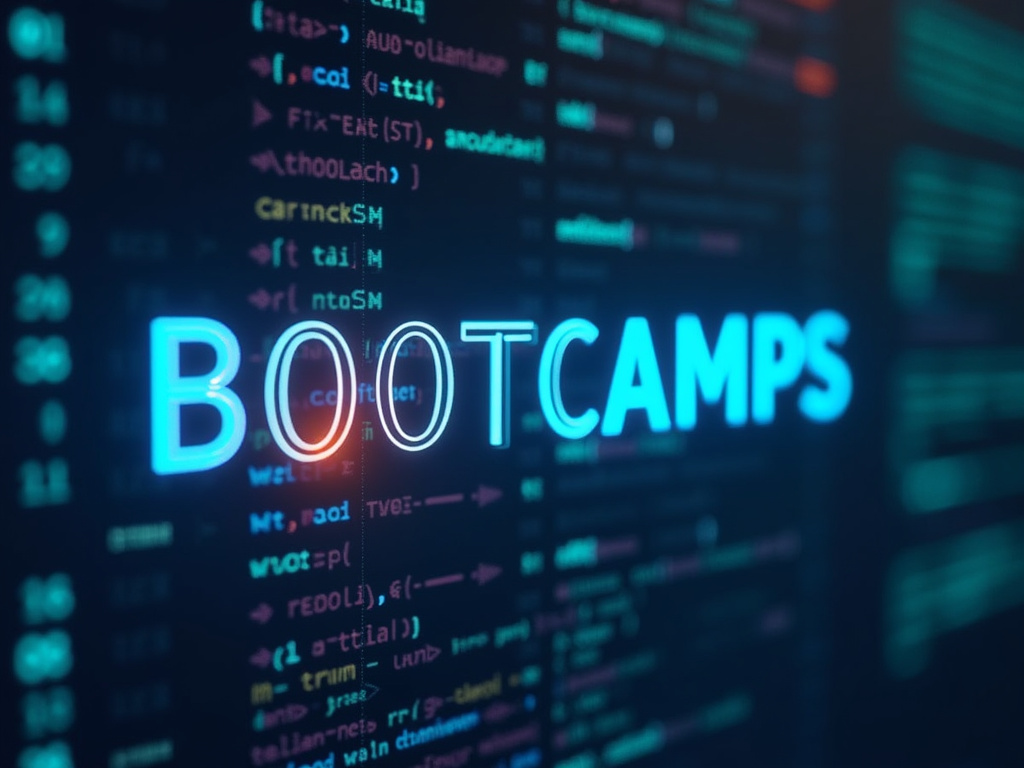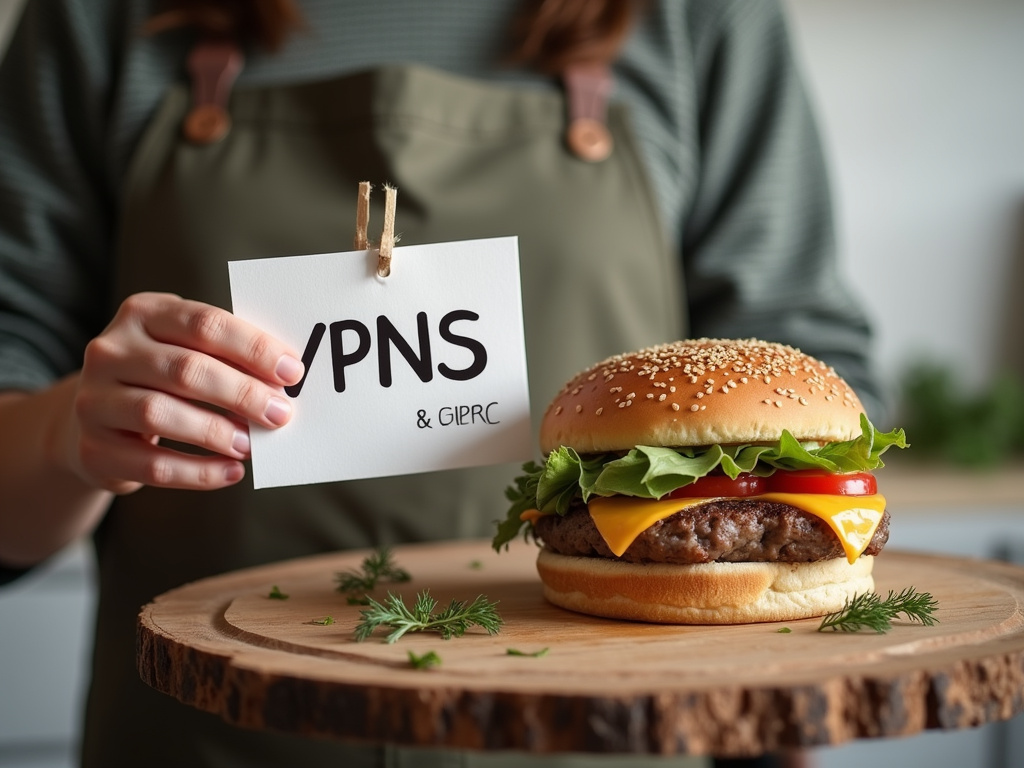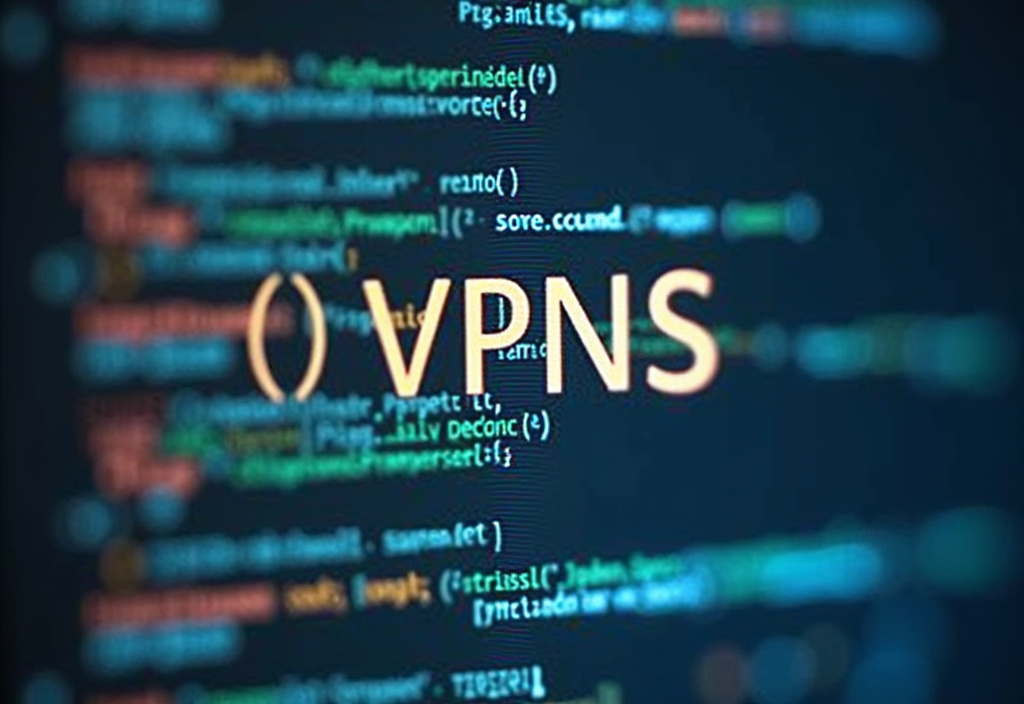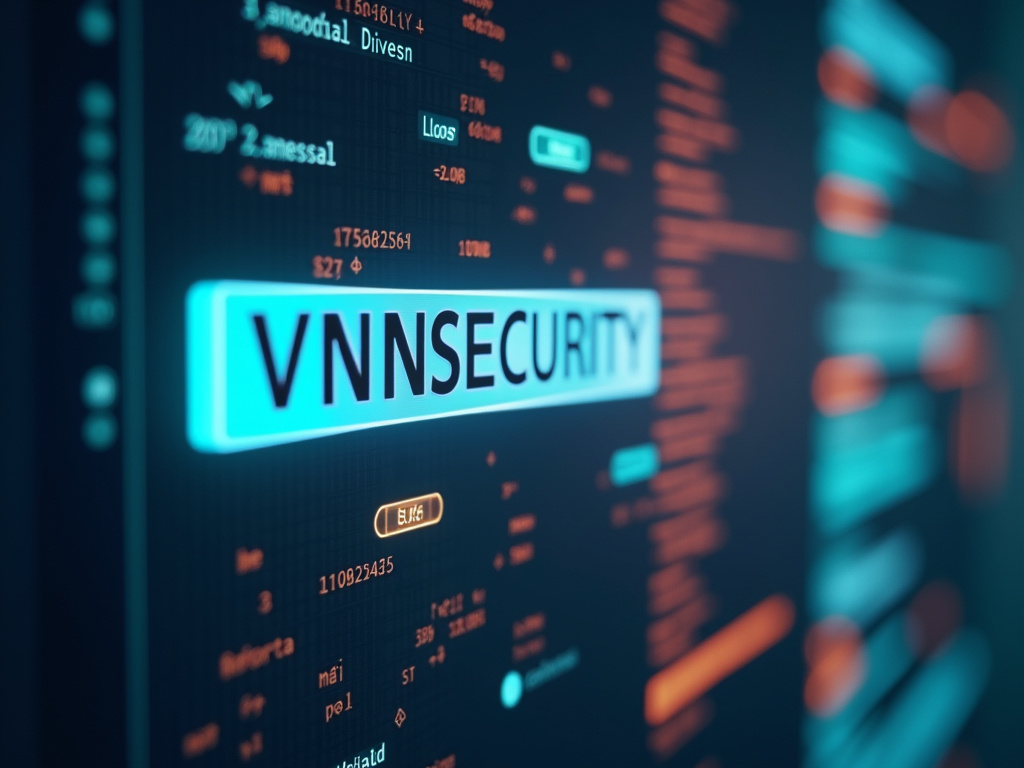VPNs for Coding Bootcamps: Securing Student Data

Table of Contents
Coding bootcamps have emerged as a dynamic and accelerated pathway to tech careers, attracting individuals from diverse backgrounds eager to master in-demand programming skills. These intensive programs, often condensed into weeks or months, immerse students in rigorous coding challenges, collaborative projects, and real-world simulations. However, the very nature of this digital learning environment introduces significant cybersecurity risks, particularly concerning the protection of student data and intellectual property.
As coding bootcamps increasingly rely on cloud-based platforms, remote collaboration tools, and open-source resources, the vulnerability to data breaches, unauthorized access, and code theft escalates. Consider the scenario where a student is working on a complex algorithm for a machine learning project utilizing a public Wi-Fi network at a local coffee shop. Without proper security measures, this student's data, which could potentially include sensitive parts of the algorithm's code or even personal credentials, becomes susceptible to interception by malicious actors lurking on the same network.
This risk is amplified when multiple students collaborate on a shared project, each contributing code from different locations and potentially using unsecure networks. The collective vulnerability increases the probability of a successful attack, leading to code theft or data compromise. Furthermore, educational platforms, cloud storage solutions, and communication channels often lack robust encryption and authentication procedures, making the data in transit or at rest an easy target for hackers.
Therefore, implementing robust security measures is paramount to safeguarding the integrity of the learning experience and ensuring the future success of bootcamp graduates. This includes enforcing strong password policies, implementing multi-factor authentication, regularly updating software and security patches, and conducting security awareness training for students and instructors. A critical component of this security strategy is the adoption of Virtual Private Networks (VPNs), which provide a secure and encrypted connection for students accessing sensitive data and working on confidential coding projects.
A VPN creates a secure, encrypted tunnel between a student's device and a VPN server, effectively masking their IP address and anonymizing their online activity. This makes it significantly more difficult for hackers to intercept their data or track their online movements. Moreover, VPNs can help protect against malware and phishing attacks by blocking access to malicious websites and filtering out harmful content.
This comprehensive article will explore the vital role of VPNs in coding bootcamps, delineating how they contribute to student data security, coding project protection, and the overall creation of a secure learning environment, ultimately solidifying trust and fostering a culture of cybersecurity awareness. We will delve into the specific threats that coding bootcamps face, the technical aspects of how VPNs mitigate these threats, and the practical steps bootcamps can take to effectively implement and manage VPN solutions. Furthermore, we will address the challenges associated with VPN deployment, such as ensuring student compliance and providing technical support, and explore best practices for overcoming these obstacles.
Finally, we will examine the long-term benefits of investing in robust cybersecurity measures, including enhanced reputation, increased student enrollment, and improved career outcomes for graduates. Protecting student data and coding projects with VPNs is no longer a luxury but a necessity for modern coding bootcamps striving to provide a secure and empowering educational experience and using a VPN for education is crucial for bootcamps to secure their student data. By prioritizing cybersecurity, coding bootcamps can differentiate themselves from competitors and attract students who recognize the importance of data privacy and intellectual property protection in today's increasingly digital world.
This commitment to security not only safeguards student data but also fosters a culture of trust and empowers students to confidently pursue their tech careers.
The cornerstone of any successful coding bootcamp is the security of student data. Bootcamps collect a wealth of personal information, including names, addresses, contact details, educational backgrounds, and payment information. This data is often stored on cloud servers or local databases, making it a prime target for cybercriminals seeking to exploit vulnerabilities.
The value of this data on the dark web is substantial, as it can be used for identity theft, financial fraud, and other malicious purposes. Imagine a scenario where hackers gain access to a bootcamp's student database, obtaining the credit card numbers and home addresses of hundreds of students. This information could be used to make fraudulent purchases, open fake accounts, or even physically target students for theft or extortion.
A data breach can have devastating consequences, exposing sensitive student information to identity theft, financial fraud, and reputational damage. The emotional and financial toll on affected students can be significant, leading to loss of trust in the bootcamp and potentially impacting their future career prospects. Moreover, bootcamps that fail to adequately protect student data may face legal repercussions, including hefty fines and lawsuits.
Data privacy regulations, such as GDPR and CCPA, impose strict requirements on organizations that collect and process personal data, and failure to comply can result in significant penalties. A single data breach can cost a bootcamp thousands or even millions of dollars in fines, legal fees, and remediation expenses. VPNs play a crucial role in mitigating these risks by encrypting all internet traffic originating from a student's device.
This encryption creates a secure tunnel that shields data from prying eyes, preventing hackers from intercepting sensitive information transmitted over public Wi-Fi networks or compromised internet connections. When a student connects to a VPN, their IP address is masked, effectively anonymizing their online activity and making it more difficult for attackers to track their location or identify their device. This is particularly important for students who frequently work from coffee shops, libraries, or other public spaces where Wi-Fi security is often lax.
Public Wi-Fi networks are notoriously insecure, often lacking encryption and leaving users vulnerable to eavesdropping. Hackers can easily set up fake Wi-Fi hotspots to lure unsuspecting users and steal their data. Furthermore, VPNs can help protect against man-in-the-middle attacks, where hackers intercept communication between a student's device and a website or server.
By encrypting the data stream, VPNs ensure that even if an attacker manages to intercept the traffic, they will be unable to decipher the contents. The intercepted data appears as gibberish, rendering it useless to the attacker. Imagine a student logging into their online banking account over a public Wi-Fi network without a VPN.
A hacker could intercept their login credentials and gain access to their bank account, potentially draining their funds. A VPN prevents this scenario by encrypting the login information, making it impossible for the hacker to steal their credentials. The implementation of a 'bootcamp VPN' for all students establishes a baseline level of security, drastically reducing the risk of data breaches and safeguarding the privacy of sensitive information.
Beyond basic encryption, many VPNs offer additional security features, such as a kill switch that automatically disconnects the internet connection if the VPN connection drops, preventing unencrypted data from being transmitted. This ensures continuous protection, even in the event of technical glitches. Imagine a student working on a sensitive coding project and their VPN connection suddenly drops.
Without a kill switch, their internet traffic would revert to the unencrypted public network, potentially exposing their data to hackers. A kill switch safeguards against this risk by immediately disconnecting the internet connection, preventing any unencrypted data from being transmitted. Therefore, deploying VPNs is essential for coding bootcamps to demonstrate their commitment to 'student data security' and build trust with prospective and current students.
By implementing comprehensive security measures, coding bootcamps can create a safe and secure learning environment where students can focus on developing their skills without worrying about the risk of data breaches. This commitment to security enhances the reputation of the bootcamp and attracts students who prioritize data privacy and intellectual property protection. Building trust through proactive security measures is crucial for long-term success in the competitive coding bootcamp landscape.
Beyond the realm of personal data, coding bootcamps must also prioritize the protection of student coding projects. These projects often represent the culmination of weeks or months of intensive learning, showcasing students' newly acquired skills and demonstrating their potential to prospective employers. These projects frequently contain original, innovative code that could be commercially valuable or form the basis for future startups or personal projects.
A student might develop a novel algorithm for image recognition, a unique approach to data visualization, or a functional prototype for a mobile app, all of which have significant intrinsic value. In many cases, students work on innovative and original code that could be commercially valuable. The theft or unauthorized access to these coding projects can have severe consequences, undermining students' efforts and potentially jeopardizing their future career prospects.
Imagine a scenario where a student's final project, a fully functional e-commerce platform with innovative features, is stolen and then quickly replicated by a competitor. This could severely impact the student's ability to showcase their skills and potentially discourage them from pursuing entrepreneurship. Furthermore, bootcamps themselves may have a vested interest in protecting the intellectual property generated by their students, particularly if the projects are based on proprietary technologies or involve confidential client data.
Coding bootcamps often collaborate with companies for real-world projects, exposing students to sensitive data and business challenges. Protecting this data during the project is key to securing the collaboration between bootcamp and companies and ensuring the bootcamp keeps its reputation when handling sensitive data and coding projects. VPNs provide a critical layer of protection for 'coding project protection' by securing the development environment and preventing unauthorized access to code repositories.
Version control systems, like Git, are used to store and manage code projects. Without a VPN, the connection to these remote repositories can be vulnerable. When students connect to a VPN, their connection to code repositories like GitHub or GitLab is encrypted, preventing attackers from eavesdropping on their activity or stealing their credentials.
An attacker could intercept a student's credentials if the connection to GitHub is not secured, potentially allowing them to access private repositories, modify code, or even inject malicious code. This is particularly important when students are collaborating on projects remotely, as their communication channels may be vulnerable to interception. Collaboration Platforms need encrypted connections and VPNs provide that protection.
In addition to encrypting the connection, VPNs can also help to mask the student's IP address, making it more difficult for attackers to trace their activity back to their physical location. This anonymity can be crucial in protecting students from targeted attacks or harassment. If a student is developing open-source software, they may be targeted by malicious actors who seek to disrupt the project or steal confidential information.
By using a VPN, students can protect their identity and make it more difficult for attackers to target them. Moreover, VPNs can be used to restrict access to code repositories based on geographical location or IP address, further limiting the risk of unauthorized access. For instance, a bootcamp could configure its VPN to only allow students from specific countries or regions to access sensitive code repositories.
This can be particularly useful in preventing code theft by malicious actors located in countries with weak intellectual property laws. Limiting repository access by region provides added security against external threats. By implementing robust VPN security measures, coding bootcamps can create a safer and more secure environment for students to develop and collaborate on their coding projects, ensuring that their hard work is protected from theft, unauthorized access, and reverse engineering.
This secure coding environment not only protects students' intellectual property but also promotes a culture of trust and collaboration, enabling them to focus on learning and innovation without fear of their work being compromised. The use of VPNs, therefore, is an integral part of fostering a culture of innovation and collaboration in coding bootcamps. The "coding project protection" that VPNs provide extends beyond mere data security; it safeguards the very essence of the bootcamp experience: the opportunity for students to learn, create, and innovate in a secure and empowering environment.
The integration of a VPN into the coding bootcamp curriculum offers significant advantages in terms of instilling 'learning security' best practices. By introducing students to the importance of VPNs and their functionality early in their training, bootcamps can cultivate a security-conscious mindset that will benefit them throughout their careers. Students need to learn not only how to write code but also how to write secure code and protect their digital assets.
Neglecting security education leaves graduates vulnerable to cyber threats in their future professional roles. A coding bootcamp that prioritizes security education demonstrates a commitment to producing well-rounded and responsible developers. Students can develop a deeper understanding of the risks associated with insecure internet connections and learn how to mitigate those risks using VPNs.
This understanding extends beyond the classroom, informing their online behavior in all aspects of their lives. Furthermore, incorporating VPN usage into the curriculum provides students with practical experience in configuring and using VPNs, making them more valuable assets to future employers. Beyond just using VPNs, they need to understand the principles behind them such as encryption, tunneling protocols, and authentication methods.
Giving students a solid understanding of these concepts will enable them to make informed decisions about security throughout their carrer. This knowledge is particularly valuable as they transition into professional roles where they may be responsible for handling sensitive data and protecting critical infrastructure. Imagine a new graduate tasked with deploying a cloud-based application.
If they've learned about network security and VPNs during their bootcamp, they will be better equipped to make informed decisions about securing the application and protecting user data. There’s also a need to incorporate "learning security" through secure coding practices. Students should be taught techniques for preventing common vulnerabilities such as SQL injection, cross-site scripting (XSS), and buffer overflows.
Regular code reviews with a focus on security can help reinforce these practices. Consider the student who diligently uses a VPN but writes code riddled with security vulnerabilities. Their application remains an open door to attackers, undermining the benefits of the VPN.
Therefore, VPN training should complement comprehensive secure coding education. Furthermore, bootcamps can utilize VPNs to create controlled "learning security" environments for students to practice security skills. Setting up virtualized networks and servers allows students to experiment with different security tools and techniques without risking real-world damage.
Students can practice penetration testing, vulnerability scanning, and incident response in a safe and controlled setting, with a VPN protecting the host devices. This hands-on experience is invaluable in preparing them for the challenges of cybersecurity in the real world ensuring that their "VPN for education" is as efficient as possible and makes them learn the most of it. Coding bootcamps should integrate real-world security scenarios into their assignments and projects.
Students can be tasked with securing a web application, protecting a database, or responding to a simulated cyberattack. These exercises provide valuable hands-on experience and reinforce the importance of security in software development. The goal is to create a generation of developers who are not only skilled coders but also security-conscious professionals, through the inclusion of a "bootcamp VPN" and also developing "student data security" practices and policies that stay with them.
By prioritizing education in using "VPN for education" and practicing security, coding bootcamps can produce graduates who are well-equipped to tackle the challenges of cybersecurity in today's digital world. This commitment to security education not only benefits the students but also enhances the reputation of the bootcamp and contributes to a more secure and resilient software ecosystem.
The long-term benefits of coding bootcamps embracing VPNs and prioritizing cybersecurity extend far beyond immediate data protection; they contribute to building trust, enhancing reputation, and ultimately improving career outcomes for graduates. In an increasingly competitive landscape, bootcamps that demonstrate a commitment to security will attract a wider pool of prospective students and solidify their position as leaders in tech education. Students are increasingly aware of the risks associated with data breaches and cyberattacks, and they are more likely to choose bootcamps that prioritize their security and privacy.
A reputation as a security-conscious institution can be a significant differentiator, setting a bootcamp apart from its competitors and attracting students who value data protection. By clearly communicating their security measures and highlighting their commitment to student data security, bootcamps can build trust and confidence among prospective students and their families, showcasing the importance of "VPN for education". The positive effects of using a "bootcamp VPN" also propagate into a better relationship with the students, during and after the bootcamp has ended.
Graduates who have been trained in secure coding practices and VPN usage are more attractive to employers. Companies are actively seeking developers who understand security principles and can contribute to building secure and resilient applications. Graduates with a strong foundation in security are more likely to be hired and often command higher salaries, reflecting the value employers place on their skills.
The bootcamp's success is directly tied to the success of its graduates. Securing better job opportunities for graduates creates a virtuous cycle, enhancing the reputation of the bootcamp therefore attracting more students and employers in the future. This symbiotic relationship underscores the importance of cybersecurity education as a core component of the coding bootcamp curriculum, and how a "VPN for education" helps the bootcamp to do so.
A "VPN for education" becomes a selling point, a feature that sets the bootcamp apart. The implementation of VPNs and cybersecurity training also fosters a culture of security within the bootcamp community. Students, instructors, and staff become more aware of security risks and more proactive in protecting data and intellectual property.
Creating security awareness campaigns, conducting regular security audits, and establishing clear security policies all contribute to building a security-conscious culture. This culture extends beyond the classroom and into the professional lives of the graduates, making them ambassadors for security in their future workplaces. Graduates become advocates for security best practices, influencing their colleagues and contributing to a more secure software ecosystem.
In conclusion, the adoption of VPNs and a comprehensive approach to cybersecurity within coding bootcamps is not merely a technical upgrade but a strategic investment in the future. Beyond the immediate benefits of "student data security" and "coding project protection," it fosters trust, enhances reputation, improves career outcomes, and cultivates a security-conscious culture. Coding bootcamps that embrace cybersecurity as a core value are well-positioned to thrive in the ever-evolving landscape of tech education, attract top talent, and contribute to a more secure digital world.
Prioritizing cybersecurity ensures that graduates are not only skilled coders but also responsible and security-conscious professionals, empowered to build a safer and more innovative future, ensuring that the investment in a "bootcamp VPN" provides long-term returns and contributes to a more secure and prosperous future for their students and the wider tech community.
Stay Updated
Get the latest VPN news, tips, and exclusive deals to your inbox.




